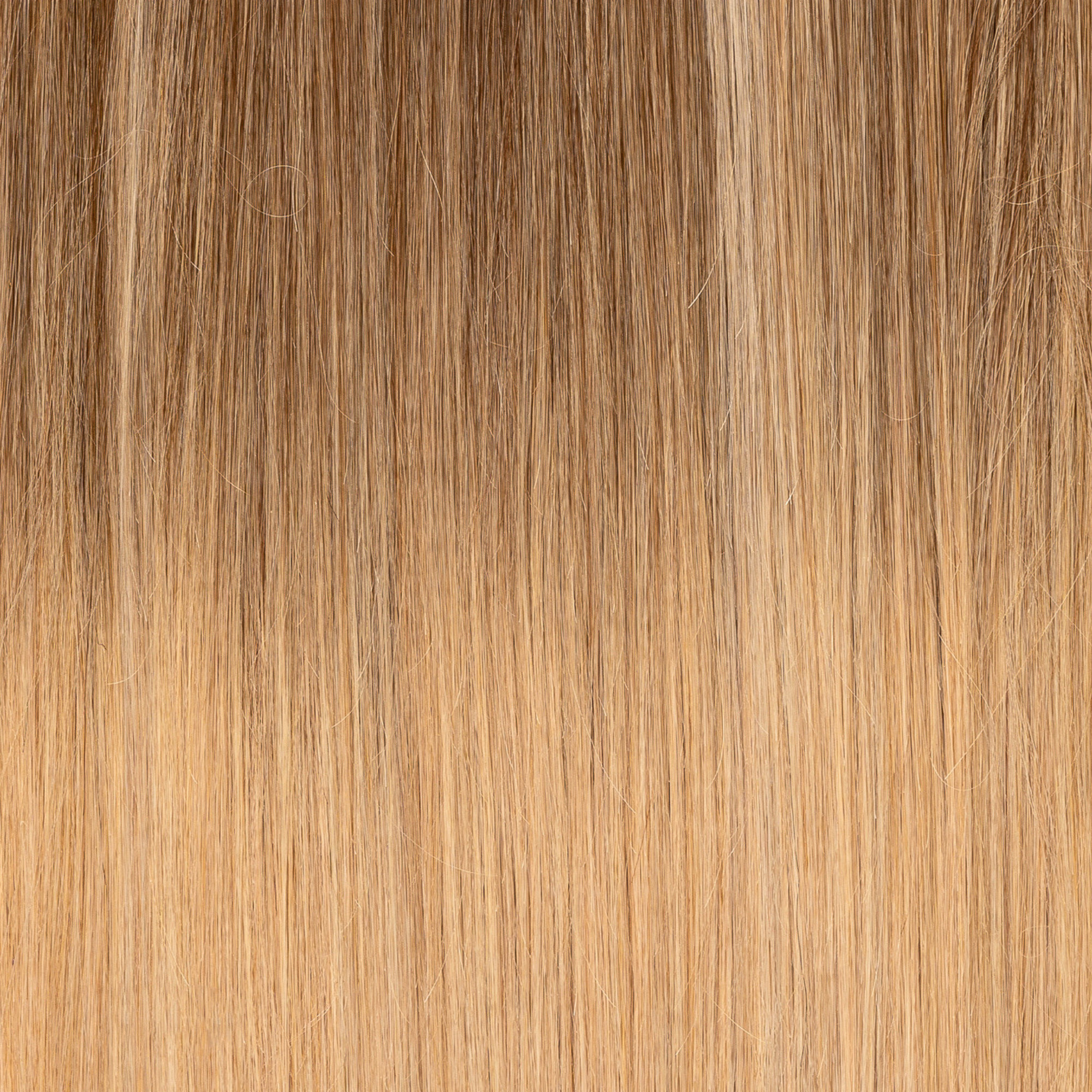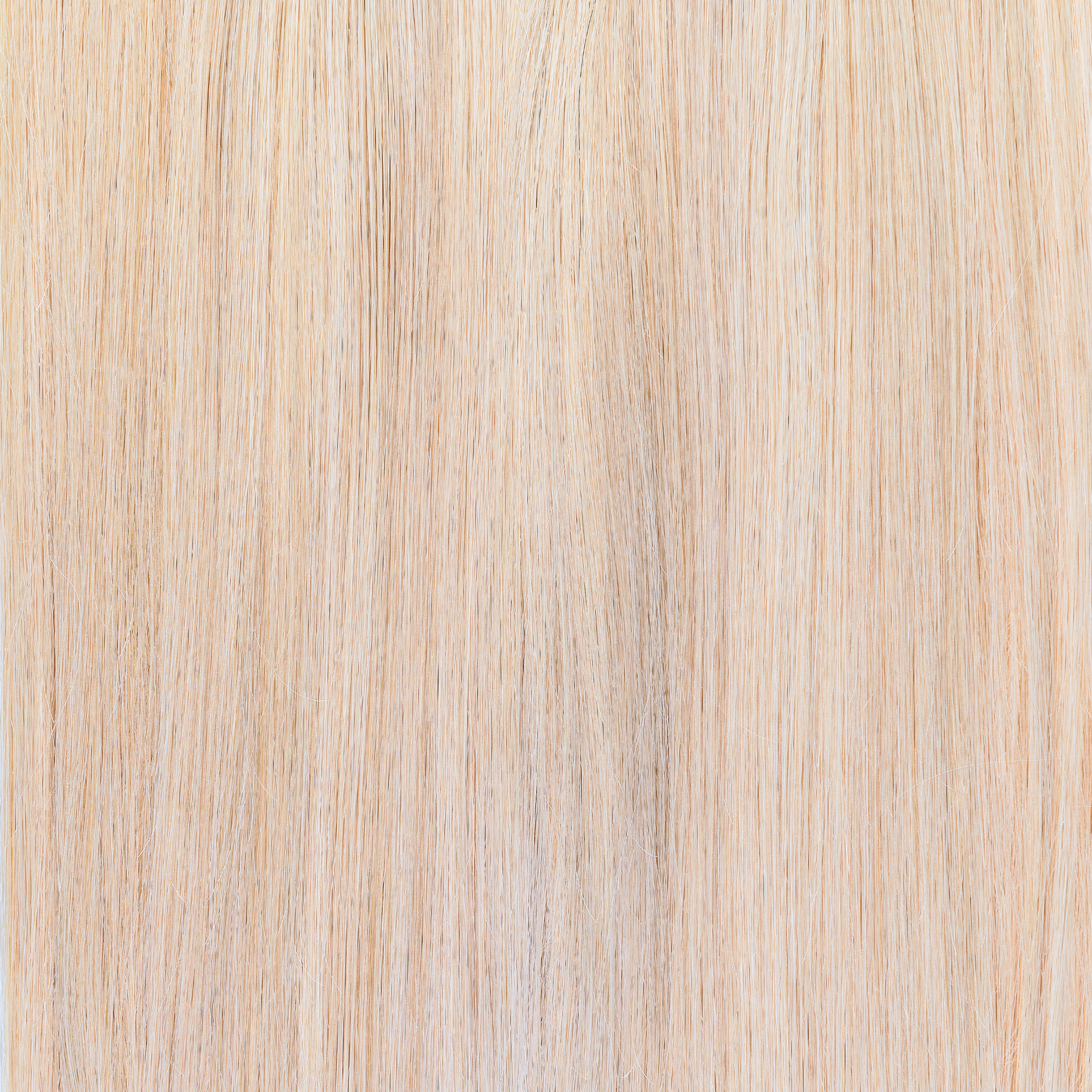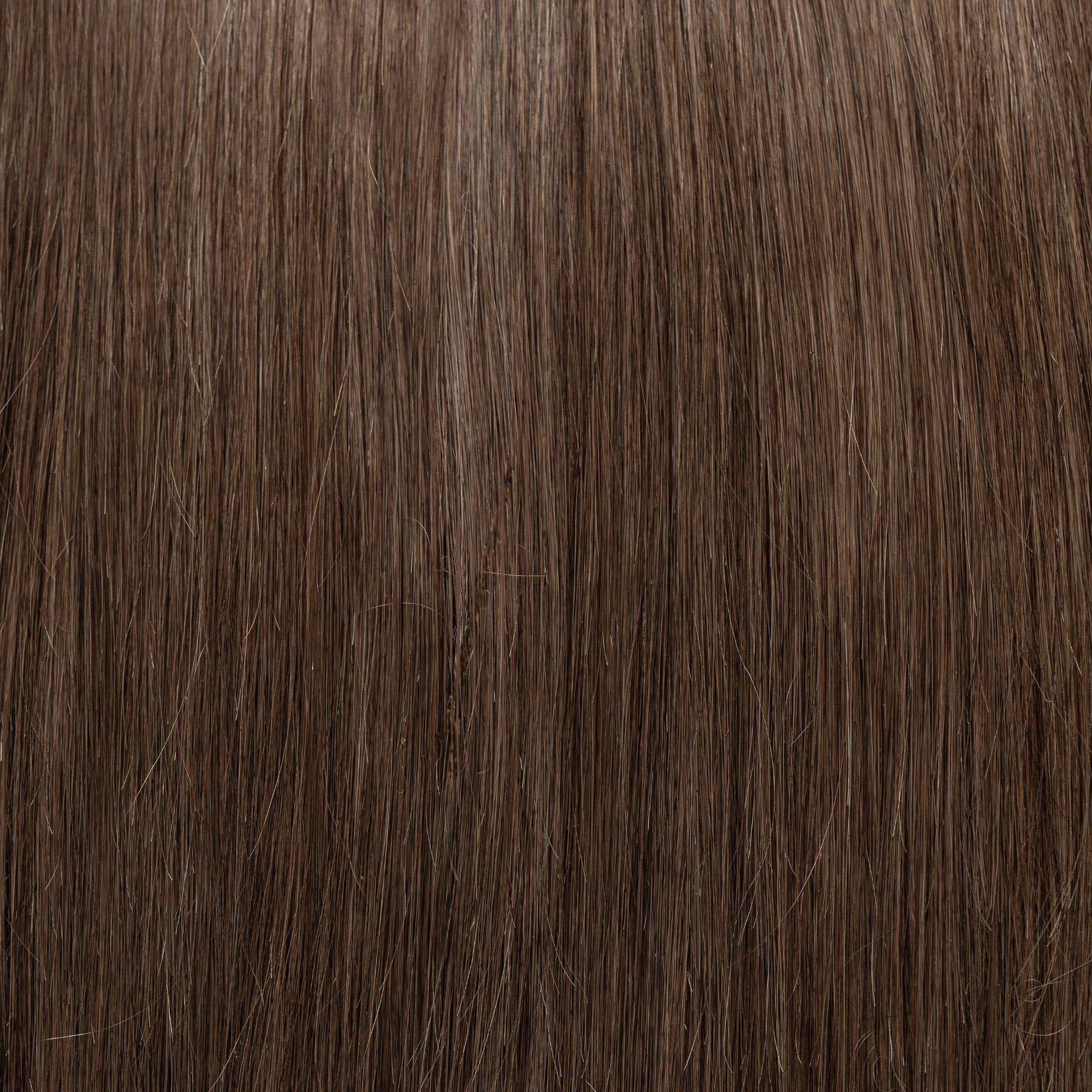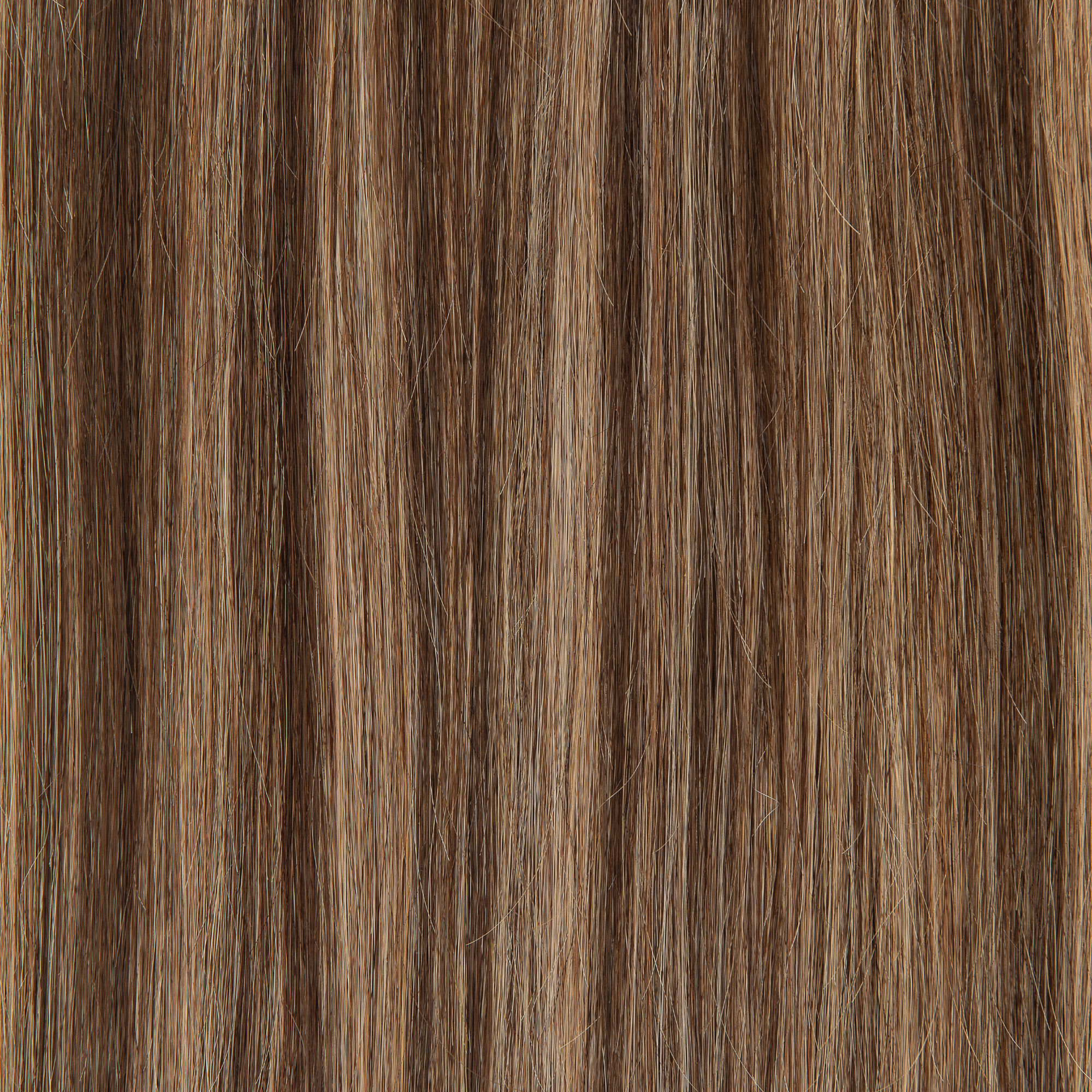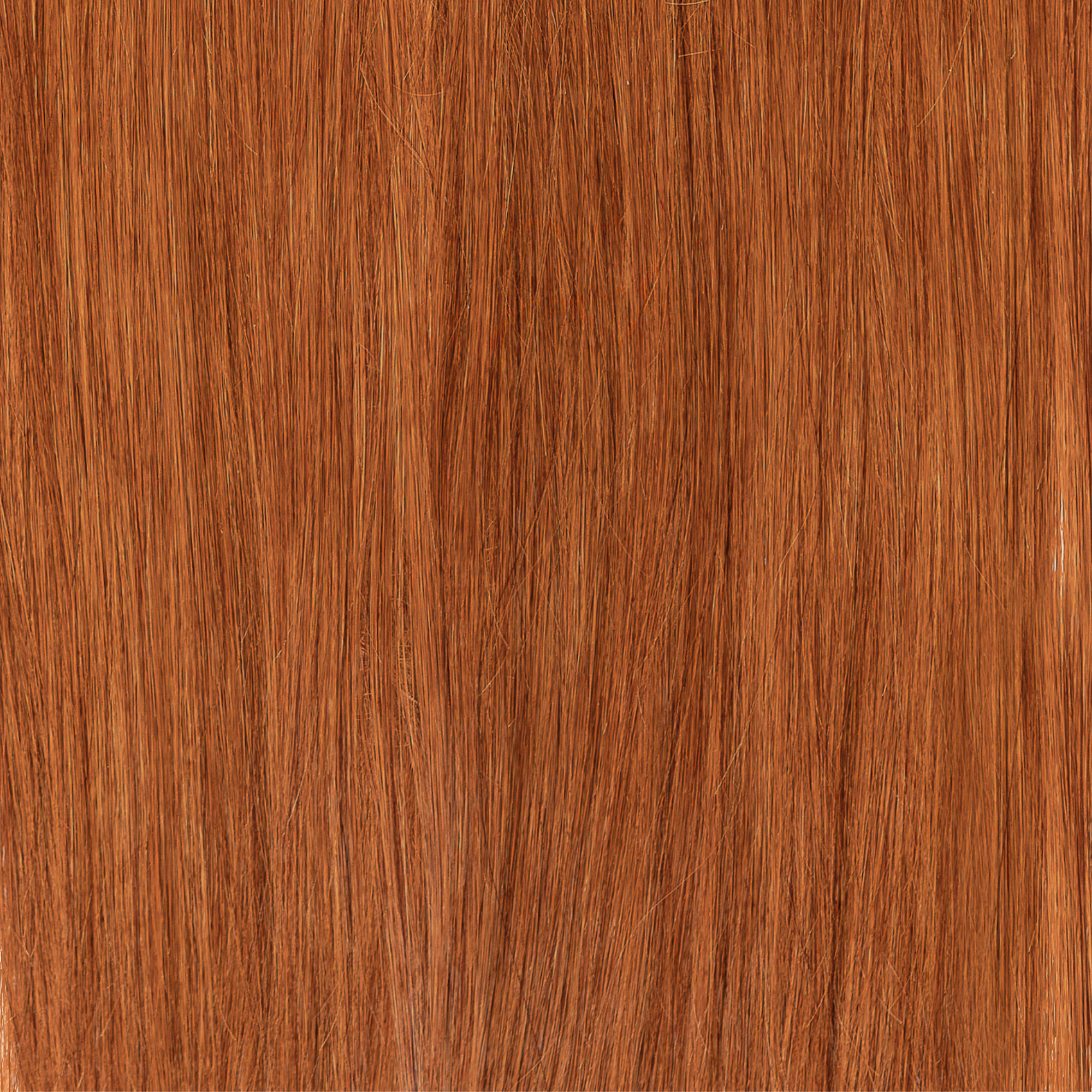
The Impact of Hair Extensions on Natural Hair Growth
- Irene GilmanHave you ever wondered do extensions help your hair grow longer and healthier? Celebrities like Ariana Grande and Kim Kardashian are known for their thick, luscious locks, and many of us dream of achieving similar hair. It’s no surprise that hair extensions have become a go-to solution for those seeking instant length and volume to their hair.
But as hair extensions become more popular, questions about their effects of extensions on hair growth, Do hair extensions help your hair grow, or could they actually slow it down? In this article, we’ll explore how hair extensions can impact the growth of your natural hair, along with expert insights and real-life examples to help you make an informed decision about their use.
Understanding Natural Hair Growth
Before we dive into the effect of your hair growth with extensions, it’s important to understand how natural hair growth works. Hair typically grows about half an inch per month, though this can vary due to several factors:
-
Genetics: Your family history plays a big role in determining the rate of your growth, its texture, and its thickness. If your family has thick, fast-growing hair, it’s likely you will too.
-
Nutrition: A diet rich in vitamins and minerals, such as biotin, zinc, and omega-3 fatty acids, is crucial for healthy hair. Poor nutrition can lead to thinning or shedding.
-
Scalp Health: A healthy scalp is essential for strong hair growth. Issues like dandruff, psoriasis, or poor oil balance can hinder the growth process.
- Lifestyle Factors: Stress, lack of sleep, and hormonal changes can disrupt the natural hair growth cycle, potentially causing hair loss or thinning.
Understanding these factors can help you take a holistic approach to maintaining healthy hair, whether you’re using extensions or not.
How Hair Extensions Affect Natural Hair Growth
Hair extensions offer a quick solution for achieving long, voluminous hair that would otherwise take years to grow naturally. However, the impact of hair extensions on natural hair growth is not as straightforward. The type of extensions used, how they’re applied, and how well they’re maintained all influence how they affect your natural hair.
In some cases, extensions can damage the natural strands, leading to issues like traction alopecia, a type of hair loss caused by excessive tension on the follicles. This can happen if the extensions are too heavy for your scalp or if hairstyles are too tight, putting stress on the scalp. Celebrities like Ariana Grande have openly discussed how their frequent use of tight ponytails and extensions contributed to thinning around their hairline.
Types of Hair Extensions and Their Effects on Natural Hair
Not all extensions are created equal. The type of extensions you use and how they’re applied will affect how they impact your natural hair. Let's explore some of the most popular options:
1. Clip-ins

Pros: Clip-in extensions are one of the most popular and non-permanent options like those from Atelier Extensions. They’re easy to apply and remove, providing instant length and volume. Since they don’t require adhesives or heat, they place minimal stress on your natural hair, making them a safe choice for occasional use.
Cons: While clip-ins are gentler than other types of extensions, improper use or wearing them too often can still cause tension at the roots, leading to potential breakage. To prevent damage, gently remove clip-ins and avoid wearing them daily.
2. Tape-in

Pros: Tape-in extensions offer a more seamless, natural look because they lie flat against the scalp. These are great for those with fine or thinning hair, as they blend well and add volume without the bulk.
Cons: The adhesive used in tape-ins can weaken your natural hair if not applied or removed correctly. If not properly maintained, they can lead to hair breakage or damage to the scalp. It’s important to follow aftercare instructions and get them professionally reapplied to avoid these issues.
3. Fusion and Keratin Bond

Pros: Fusion extensions use a keratin-based adhesive to attach individual strands to your natural hair. They provide a long-lasting, natural look that can be customized to your natural color and texture.
Cons: Fusion extensions can be heavy, and improper application or maintenance can lead to breakage. The bonds need to be carefully managed, and they require professional installation and removal, which can be costly.
4. Sew-in (Weave)

Pros: Sew-in extensions involve weaving your natural hair into braids, with additional wefts sewn in for added length and volume. This method is secure and long-lasting, however more suitable for those with thicker, coarser locks.
Cons: Sew-ins can place significant tension on the scalp, especially around the hairline, potentially leading to traction alopecia over time. If sewn in too tightly, they can also cause discomfort and breakage, particularly along the edges. Choosing an experienced professional is key to minimizing these risks.
Weighing the Effects of Extensions
Extensions impact on hair growth largely depends on the type of extensions used and how they are applied. According to hair experts, human hair clip-in extensions are generally the safest options for natural hair growth when used occasionally. More permanent options like fusion, tape-in and sew-in extensions offer long-term results but come with a higher risk of damage if not properly maintained.
Promoting Healthy Hair Growth with Extensions
While extensions can give you an instant style transformation, it’s important to focus on maintaining the health of your natural starnds. With proper care, you can enjoy the benefits of extensions without compromising the growth and health of your hair. Here are some essential tips for maintaining both your natural hair and your extensions:
1. Regular Scalp Massages
A healthy scalp is the foundation for strong hair growth. Scalp massages not only improve circulation but also stimulate hair follicles, promoting hair growth. Use nourishing oils like argan or coconut oil and gently massage your scalp for a few minutes every day to help stimulate blood flow and relax the scalp.
2. Keep Your Extensions Clean and Hydrated
Both your natural hair and your extensions need regular care to maintain their appearance. Wash your extensions as per their specific care instructions, and use sulfate-free shampoos and conditioners to prevent drying out your natural hair. Hydrate your hair and extensions regularly to maintain softness and prevent buildup.
3. Avoid Over-tightening Extensions
Whether you’re using clip-ins, tape-ins, or sew-ins, it’s important not to make your extensions too tight. Excessive tension can lead to hair thinning or breakage over time. Ensure that extensions are applied with just enough hold to stay in place, without putting stress on your natural hair.
4. Give Your Natural Hair Breaks
One of the best ways to keep your natural stands healthy while wearing extensions is to give your hair breaks between uses. Whether you wear clip-ins occasionally or have more permanent extensions, make sure to allow your strands rest and recover between installations. This will help prevent damage and give your hair a chance to regenerate.
Conclusion
Extensions can be a fantastic way to enhance your hairstyle, adding volume and length in an instant. However, they require proper care and consideration to ensure they don’t negatively affect your natural growth. By choosing the right type of extensions, using them in moderation, and following healthy hair care practices, you can enjoy the benefits of extensions while maintaining your hair’s health and growth. Whether you're aiming for an occasional style change or seeking longer-term results, it’s important to prioritize both the health of your natural hair and the integrity of the extensions themselves.
Ultimately, the key to achieving healthy hair growth while using extensions is balance—taking care of your scalp, giving your hair the proper nourishment, and ensuring you don’t overdo it with tight or heavy extensions. So, go ahead and experiment with different looks, but always remember that healthy hair is the foundation for the best possible results.
